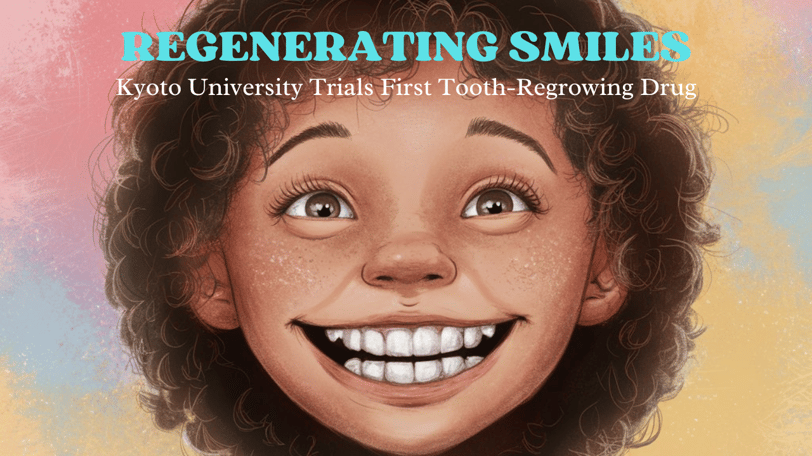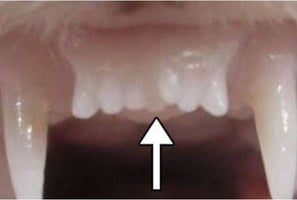Regenerating Smiles: Kyoto University Trials First Tooth-Regrowing Drug


Oral health is not just about maintaining a beautiful smile, it is fundamental to our overall well-being. Our teeth play a crucial role in vital functions like eating, speaking, and maintaining proper facial structure. Beyond aesthetics, neglecting oral care can lead to serious health issues like cardiovascular disease, diabetes complications, and respiratory infections, highlighting the interconnectedness of oral health and overall well-being. Now, the landscape of oral health is poised for a paradigm shift. Kyoto University Hospital is embarking on groundbreaking human trials in September 2024 for the first-ever tooth-regenerating drug. This innovative treatment holds immense potential to address tooth loss and congenital deficiencies, revolutionizing dental care and improving the lives of millions. As we explore the future of dental care, this research represents a beacon of hope, bringing us close to a world where tooth loss may no longer be a lifelong burden.
The drug's mechanism hinges on the USAG-1 protein, a critical regulator in tooth development. USAG-1 inherently inhibits tooth growth. This drug disrupts USAG-1 function, triggering the natural regeneration of new teeth. Pre-clinical studies in animal models have demonstrated remarkable success, with the drug facilitating the growth of fully functional teeth without adverse effects. Toregem Biopharma Co., supported by Kyoto University is conducting the clinical trials to evaluate the drug’s safety and efficacy in humans. The initial phase, commencing in September 2024 and expected to conclude in August 2025, will involve 30 male participants aged 30-64, each with at least one missing molar. The drug will be administered intravenously to assess its efficacy and safety in promoting new tooth growth. The focus on males within this specific age range ensures a controlled environment for this first-in-human study.


The development of this tooth-regenerating drug carries far-reaching implications for the future of dentistry and overall health. Beyond the obvious benefit of restoring natural teeth, this treatment could significantly reduce the need for invasive dental procedures and the long-term maintenance associated with dentures and implants. Additionally, by offering a more permanent solution to tooth loss, it has the potential to reduce healthcare costs. As with any groundbreaking medical advancement, ethical and social considerations come to the forefront. Ensuring equitable access to this treatment will be crucial, particularly for underprivileged populations who often face a higher burden of dental health issues. Furthermore, comprehensive long-term studies will be essential to fully understand the potential risks and benefits of the treatment.
Dr. Katsu Takahashi, the lead researcher and head of dentistry and oral surgery at Kitano Hospital, expressed optimism about the potential impact of this drug: "We want to offer a solution for those suffering from tooth loss or absence. While there haven't been permanent treatment options to date, we believe there's a strong desire for tooth regeneration". This sentiment reflects the significant need and hope for a permanent solution to tooth loss and congenital dental deficiencies.
We shall be hopeful for a future where natural tooth regeneration becomes a reality!
Reference:
Building upon successful initial trials, the second phase will broaden the scope to include children aged 2-7 with congenital tooth deficiencies. The primary target will be children with oligodontia, a condition characterized by the absence of at least four permanent teeth from birth, affecting roughly 0.1% of the population. Addressing such congenital conditions early in life can significantly improve the dental health and overall well-being of affected individuals from a young age. Should the drug prove safe and effective in the initial phases, subsequent trials will expand to include adults who have lost teeth due to environmental factors like cavities or injuries. This broader application could potentially offer a permanent solution for the millions of individuals worldwide grappling with tooth loss. The ultimate goal is to make this treatment commercially available by 2030, providing a revolutionary alternative to current dental restoration techniques like implants and dentures.
Photo shows a new tooth grown in a ferret's mouth after it was administered a new drug to stimulate the growth of tooth buds. (Photo courtesy: Katsu Takahashi)
